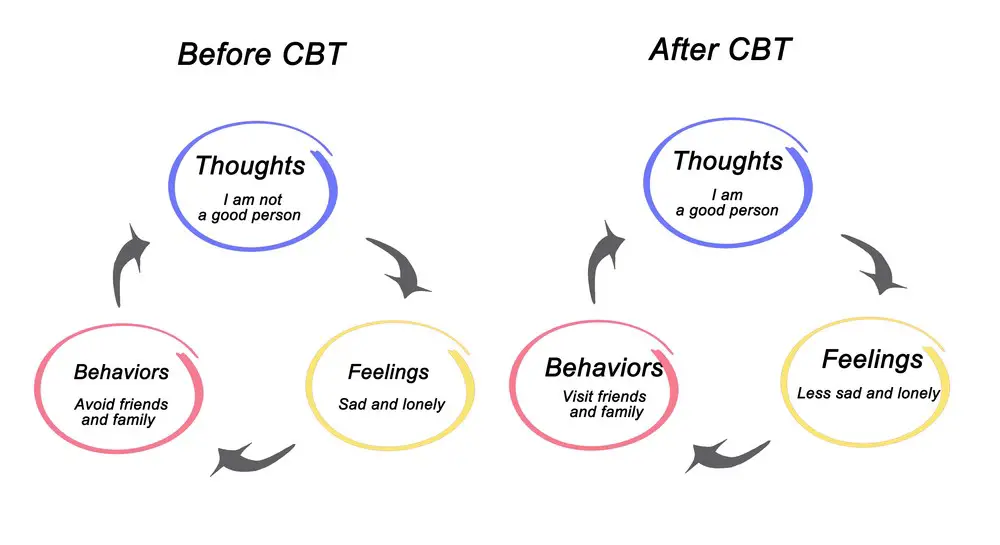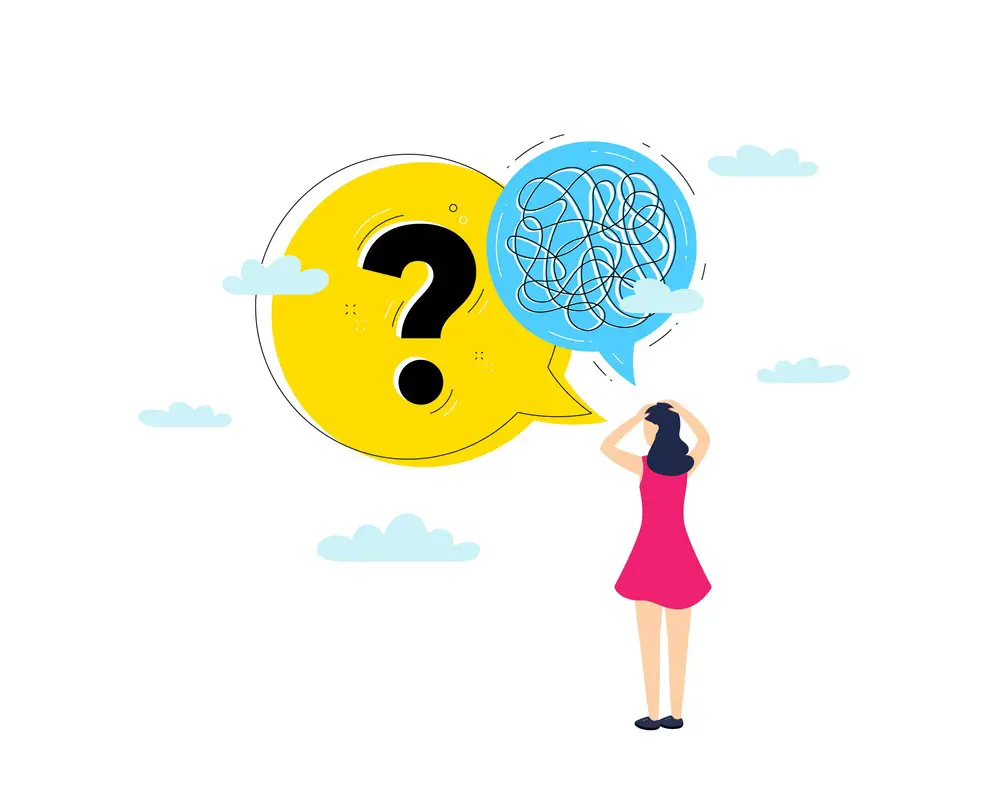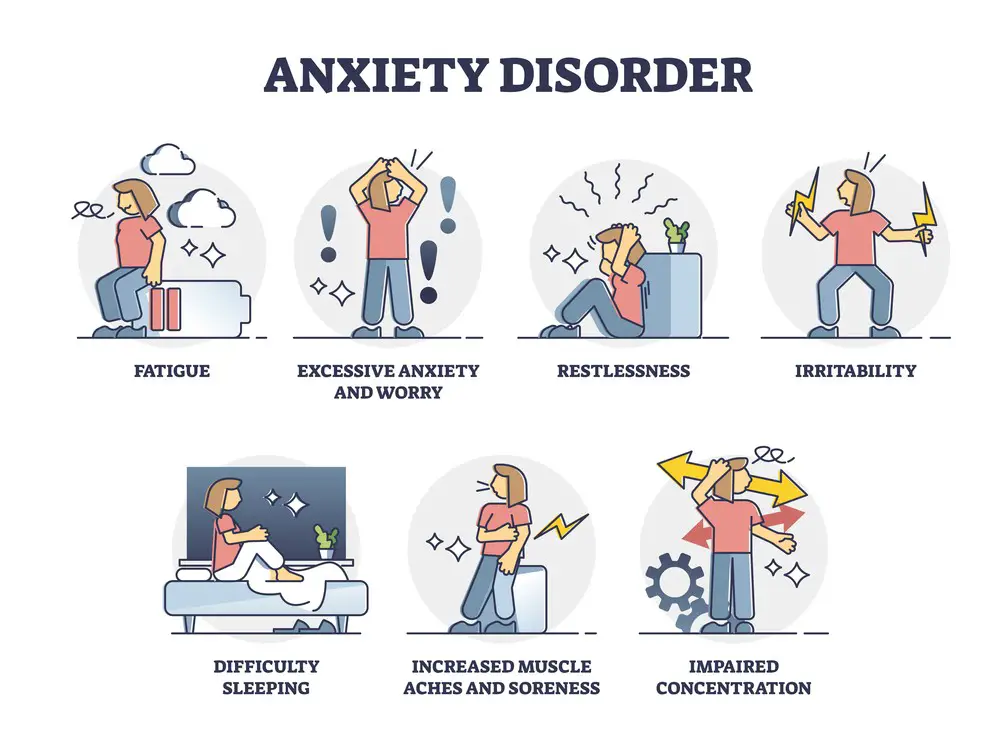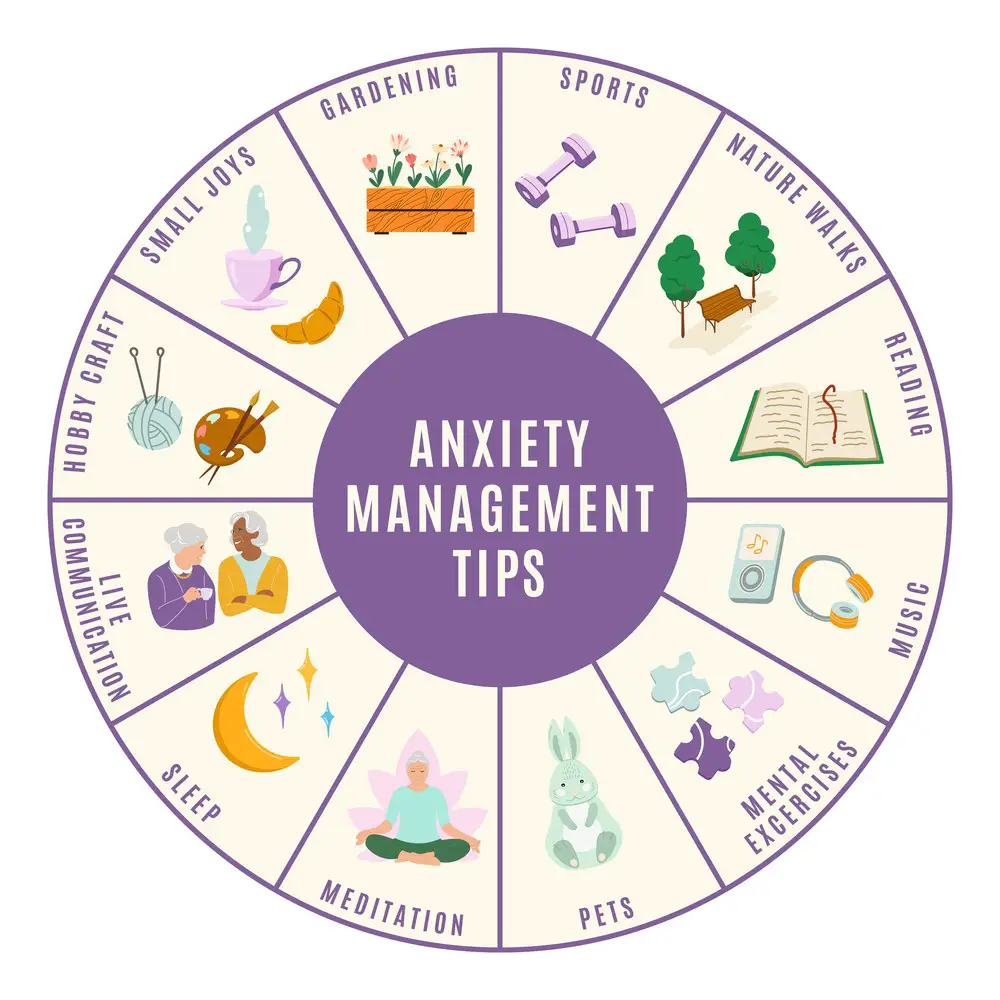As a BetterHelp affiliate, we receive compensation from BetterHelp if you purchase products or services through the links provided
Sometimes, you can feel so stressed that you start to feel under the weather, and it can be difficult to tell whether you are unwell or if your body is reacting to stress.
For many people, being unwell can cause more stress, as they worry about being able to cope with everything they have to do. It can be a vicious cycle!
Can stress cause flu-like symptoms? In short, yes – stress and anxiety can cause flu-like symptoms, so it’s essential to recognize the signs that your body is reacting to stress rather than an infection.
Flu-like Symptoms Caused by Stress
Many common anxiety disorders and stress symptoms can mimic the flu symptoms. There are psychological and physical symptoms of stress and anxiety, with people feeling them at varying intensities.
The physical symptoms of stress that can feel like the flu include:
- Headaches
- Aches and pains
- Stomach upset
- Diarrhea
- Nausea
- Fatigue
- Muscle tension
The psychological symptoms of stress that can make you feel like you have the flu include:
- Difficulty concentrating
- Restlessness
- Sleep problems
If you are suffering from flu-like symptoms, seeing a doctor to rule out any other possible causes is vital. However, if your doctor does confirm that your symptoms are caused by chronic stress or anxiety, there are several things you can do to help reduce your stress and anxiety and, in turn, reduce your feeling of being unwell.
The difference between acute stress and chronic stress
It is important to understand the difference between acute and chronic stress, as this can help you identify whether your symptoms are being caused by stress.
Acute stress is a normal response to a stressful situation and usually disappears after a stressful event. Feeling stressed when you have a lot to do or face a challenging situation is natural.
Chronic stress, on the other hand, is ongoing and usually goes hand-in-hand with an anxiety disorder. Chronic stress is when the stressor (the thing that is causing the stress) is constant, and there is no respite. This can have a serious impact on your physical and mental health.

Why Can Anxiety and Chronic Stress Cause Flu-like Symptoms?
Our body’s stress response is known as the ‘fight-or-flight’ response. This innate survival mechanism evolved to help us respond quickly to potentially dangerous situations.
We release stress hormones such as adrenaline and cortisol when we perceive a threat. These hormones increase our heart rate and raise our blood pressure. They also divert blood away from our gut and towards our muscles in preparation for physical activity.
This ‘fight-or-flight’ response is helpful in short bursts, but if we constantly feel stressed or anxious, our body remains highly alert. This can lead to many physical and mental health problems, including flu-like symptoms.
Chronic stress and anxiety symptoms are generally found across various mental and physical health conditions, so it can be difficult to tell if they cause your symptoms or if you have another health condition.
 Can Anxiety Weaken Your Immune System?
Can Anxiety Weaken Your Immune System?
Too much stress and anxiety can weaken your immune system, making you more susceptible to illness. This is because when our body is in a constant state of stress response, it produces fewer infection-fighting cells and antibodies.
If you come into contact with a virus, you will likely develop the illness. Additionally, the symptoms of anxiety and stress can make it challenging to get a good night’s sleep, weakening your immune system.
Those with a weaker immune system are more susceptible to sicknesses like the common cold, irritable bowel syndrome (IBS), and even severe conditions such as heart disease.
There is currently no evidence to suggest that chronic stress and anxiety can directly cause illnesses like the flu. However, stress and anxiety can worsen your symptoms if you are unwell.
For example, if you have a cold, stress and anxiety can worsen your symptoms and make you feel more tired. Also, stress and anxiety can trigger your symptoms if you have a condition like IBS.
 How to Tell the Difference Between Stress Symptoms and Flu Symptoms
How to Tell the Difference Between Stress Symptoms and Flu Symptoms
There are several key ways to tell the difference between stress and flu symptoms.
Firstly, flu symptoms tend to appear suddenly, whereas stress symptoms develop over time. Secondly, flu symptoms usually last for a week or two and then go away, whereas stress symptoms can last for months or even years.
Thirdly, flu symptoms are generally more severe than stress symptoms. For example, you may have a fever or muscle tension with the flu but not with stress. Finally, flu symptoms tend to resolve once the illness has passed, but stress symptoms may persist even after the stressful event has ended.
If you are unsure whether your symptoms are due to stress or the flu, you must see your doctor for a diagnosis. This is especially important if your symptoms are severe or last for more than a week or two.
Your doctor will be able to rule out other possible causes of your symptoms and give you the best treatment plan for your particular situation.
 Zen Hacks: A User’s Manual for Stress Management
Zen Hacks: A User’s Manual for Stress Management
If you’re up to your eyeballs in stress, don’t fret. The good news is that stress is manageable. The even better news? Some of these solutions are easier than you’d think and might even bring some fun into your life. Here are some tried-and-true ways to dial down the stress and dodge those flu-like symptoms:
The Almighty Breath
- Inhale, Exhale, Repeat: Breathing exercises such as the 4-7-8 technique can work wonders in moments of stress. Inhale through the nose for 4 seconds, hold the breath for 7 seconds, and exhale through the mouth for 8 seconds. Ah, feel that? It’s relaxation knocking at your door.
Get Moving, Get Grooving
- Exercise Your Right to Chill: Physical activity releases endorphins, natural mood lifters. It doesn’t have to be a full-blown gym session; even a quick walk around the block can make a difference.
The Mindful Minute
- Present and Accounted For: Mindfulness and meditation can help you focus on the ‘here and now’, which is a nifty trick to minimize stress. Apps like Headspace or Calm offer short guided sessions.
Feast Your Way to Calm
- Eat Stress Away (The Healthy Way): Foods rich in Vitamin C, magnesium, and Omega-3 fatty acids have been shown to reduce stress. Think oranges, leafy greens, and fatty fish. No, a stress-induced chocolate binge doesn’t count!
Tune In to Tune Out
- Soundtrack to Serenity: Music can affect your mood—so why not build a playlist of your favorite soothing tunes? Listening to it during high-stress moments can be surprisingly effective.
Creativity is the Best Medicine
- Doodle, Scribble, Create: Drawing, painting, or even just doodling can be a great way to relieve stress. It lets you express your feelings in a way words can’t capture.
So, take your pick from this stress-busting smorgasbord and give those flu-like symptoms the boot. Because really, who’s got time to be a stress magnet when life could be so much lighter?

Therapy For Your Anxiety Disorder
If you feel you are suffering from chronic stress and anxiety that is becoming unmanageable, it is crucial to seek professional help.
Cognitive behavioral therapy (CBT) is a type of therapy that can be particularly effective for those with anxiety disorders. CBT focuses on helping you identify and change the negative thoughts and beliefs causing your anxiety.
There are many different therapy methods, whether you are a young adult, an adult or a senior citizen. Therapy is much more accessible today than in the past, and many different types of therapy exist.
Online therapy is becoming increasingly popular, as it is more convenient and often more affordable than traditional face-to-face therapy.
If you are considering online therapy, you can get 15% off from BetterHelp by clicking this link.

Flashing Signs: Time for Therapy
When should you worry about your stress levels? Here are some red flags:
- Constant fatigue despite adequate sleep
- Inability to enjoy activities that usually make you happy
- Regular mood swings or irritability
- Unexplained physical symptoms persisting over weeks
If you’re nodding at these signs, it might be time to seek therapy.
 Therapy Goals: Not Just a Venting Session
Therapy Goals: Not Just a Venting Session
Entering therapy isn’t just about complaining about your boss for an hour. You’ll have concrete goals to work toward:
- Identify Triggers: Know what pushes your buttons so you can sidestep those emotional landmines.
- Stress Management Techniques: Whether it’s deep breathing, physical activity, or an artistic outlet, find what calms you.
- Cognitive Re-framing: Sometimes, it’s all about perspective. Learn to view stressful situations from a new angle.
Markers on the Road: Signs of Progress in Therapy
It’s important to know that you’re not just spinning your wheels, so here are some indicators you’re on the right track:
- Decrease in physical symptoms: Your body will thank you!
- Improved sleep: Sweet dreams, finally.
- Increased productivity: You’re back in your groove, doing what you love without feeling weighed down.
- Emotional balance: It’s like emotional yoga—you’re flexible but stable.
You’re not just a passive passenger on the stress express. You can be the conductor, steering your life in a more positive direction. Don’t ignore the signals; listen to your body and mind. If stress is causing you to mimic flu-like symptoms, it might be time to make some lifestyle changes—or perhaps a therapy appointment.
Summarizing: Can Stress Cause Flu-like Symptoms? What’s the Difference?
While stress and anxiety don’t lead to flu, the symptoms can mimic those of the flu.
Flu symptoms tend to come on suddenly and be more severe than stress symptoms, which develop over time. Additionally, flu symptoms usually only last for a week or two, whereas stress symptoms can last for months or even years if you have an anxiety disorder.
Many therapies are available to treat anxiety disorders, including cognitive behavioral and online therapy. If you are struggling to manage your stress and anxiety, it is essential to seek professional help.
FAQs

- Stress Management: What is the Relationship Between Stress and Addiction? - June 28, 2024
- Exploring Techniques to Maintain a Healthy Lifestyle without Drugs - May 28, 2024
- How Acupuncture Helps Treat Chronic Fatigue Syndrome - May 28, 2024
This site contains affiliate links to products. We will receive a commission for purchases made through these links.


 Can Anxiety Weaken Your Immune System?
Can Anxiety Weaken Your Immune System? How to Tell the Difference Between Stress Symptoms and Flu Symptoms
How to Tell the Difference Between Stress Symptoms and Flu Symptoms Zen Hacks: A User’s Manual for Stress Management
Zen Hacks: A User’s Manual for Stress Management Therapy Goals: Not Just a Venting Session
Therapy Goals: Not Just a Venting Session

